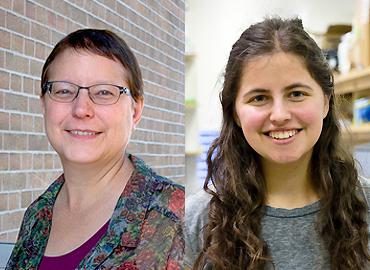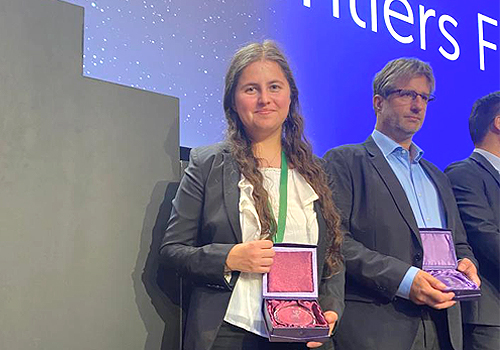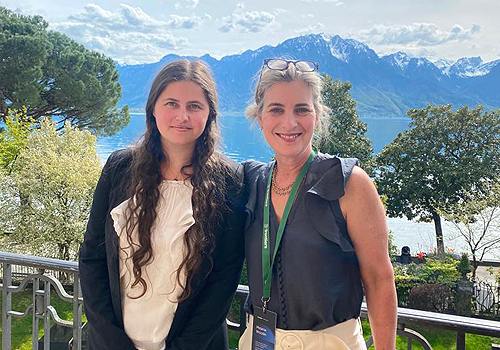Ecology & evolutionary biology researchers win prestigious Frontiers Planet Prize

A team including Ariel Greiner, University Professor Marie-Josée Fortin, Associate Professor Martin Krkosek and Adjunct Professor Emily Darling is one of twenty Frontiers Planet Prize National Champions from around the world.
Greiner is currently a postdoctoral fellow at Pennsylvania State University and Oxford University, and was formerly a graduate student in the Faculty of Arts & Science’s Department of Ecology & Evolutionary Biology. The other U of T members of the team are with the department.

The Frontiers Planet Prize is a new international competition aimed at igniting an Olympic-style race to find scientific solutions to stabilise our planet’s ecosystem. Its goal is to galvanize international interest and support the scaling-up of the most promising strategies.

The team is being recognized for their paper Limited spatial rescue potential for coral reefs lost to future global warming which investigates the effects of climate change, and in particular, the acidification of oceans, on coral reefs and their ability to recover from bleaching caused by increased levels of carbon in seawater. The paper was published in the journal Global Ecology and Biogeography.
“I was deeply honoured to see a study from my PhD be recognized in this way on an international stage,” says Greiner. “This study describes six major coral reef networks worldwide and highlights the lack of connections between the climate-resilient reefs that are currently being prioritized and other reefs worldwide, stressing the importance of further study of these reef networks to find ‘steppingstone’ reefs that, if conserved, can reseed reefs that are unreachable from these prioritized reefs.

“We hope with the Frontiers Planet Prize platform, this study will reach scientists, conservation managers and policy makers from around the world who can take this work further and use it to improve global coral reef conservation efforts.”
All the national winners were honoured and three international winners announced at an awards ceremony in Montreux, Switzerland, attended by Greiner, Fortin and Faculty of Arts & Science dean, Melanie Woodin.
